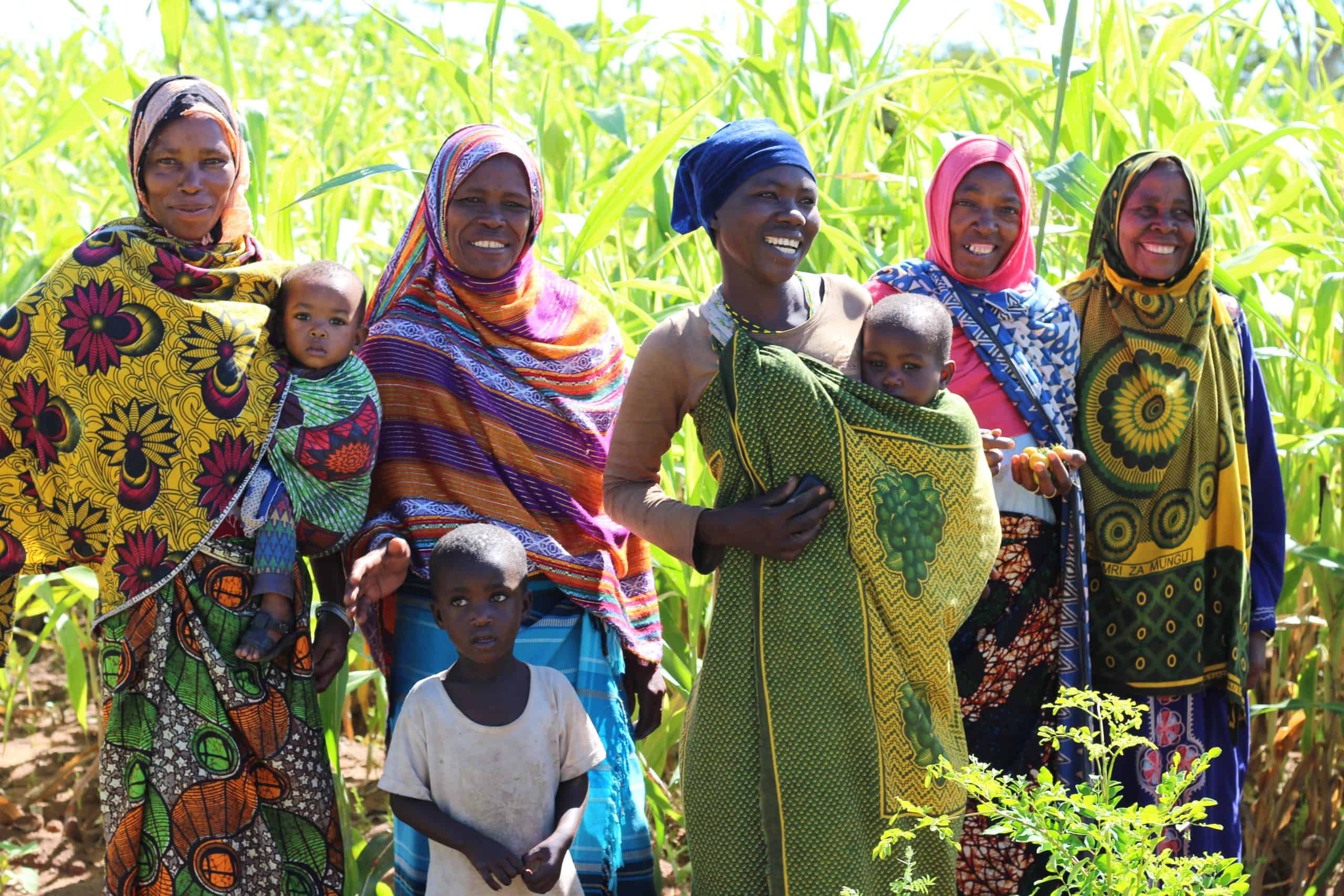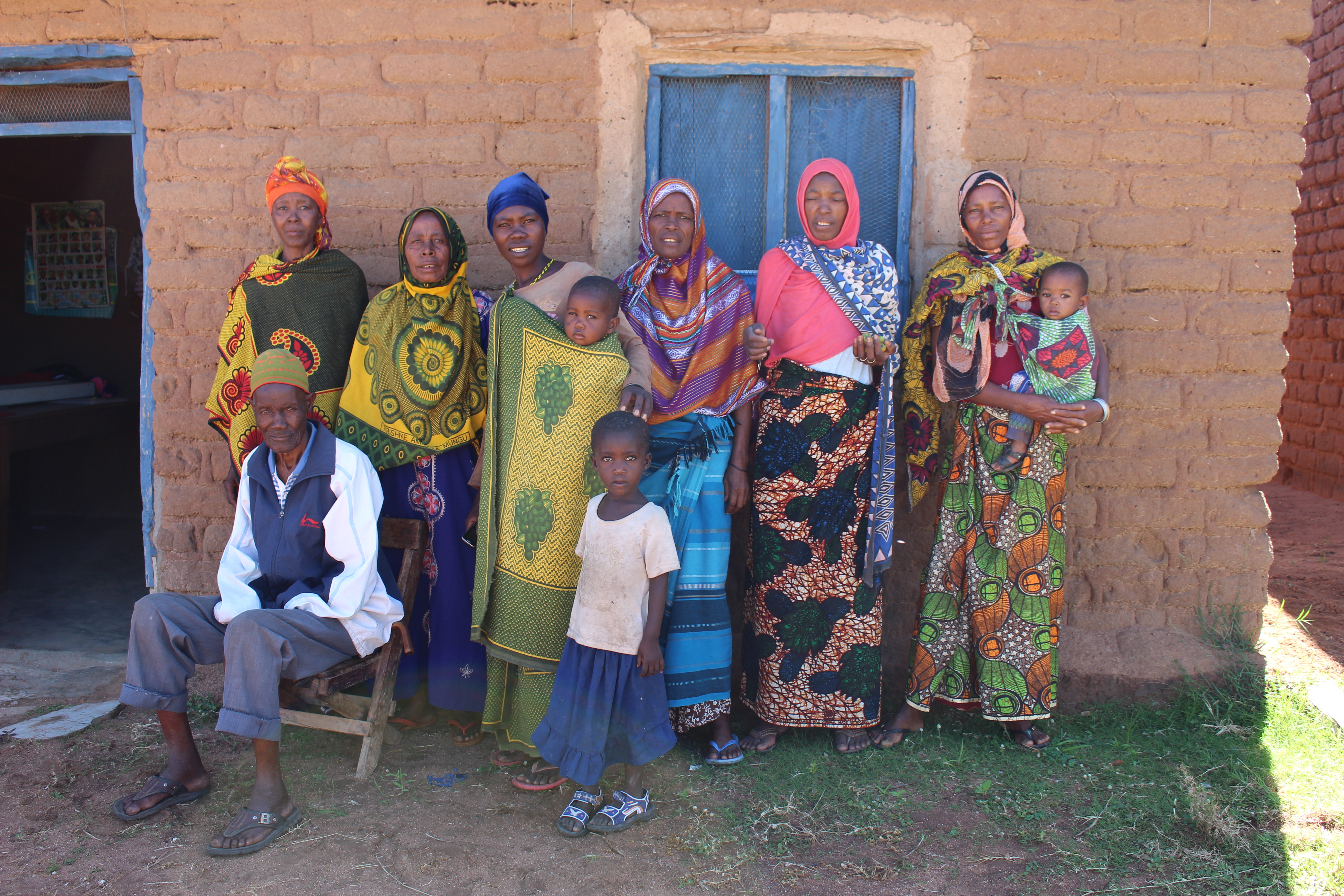
For the Upendo group of Tanzania, the farmers are each other’s biggest support system. Each member of the group lives with HIV and found the group through a referral from a nearby clinic. Beyond this common bond of proximity and medical diagnosis, the members are diverse – the group includes men and women, young and old, Muslim and Christians.
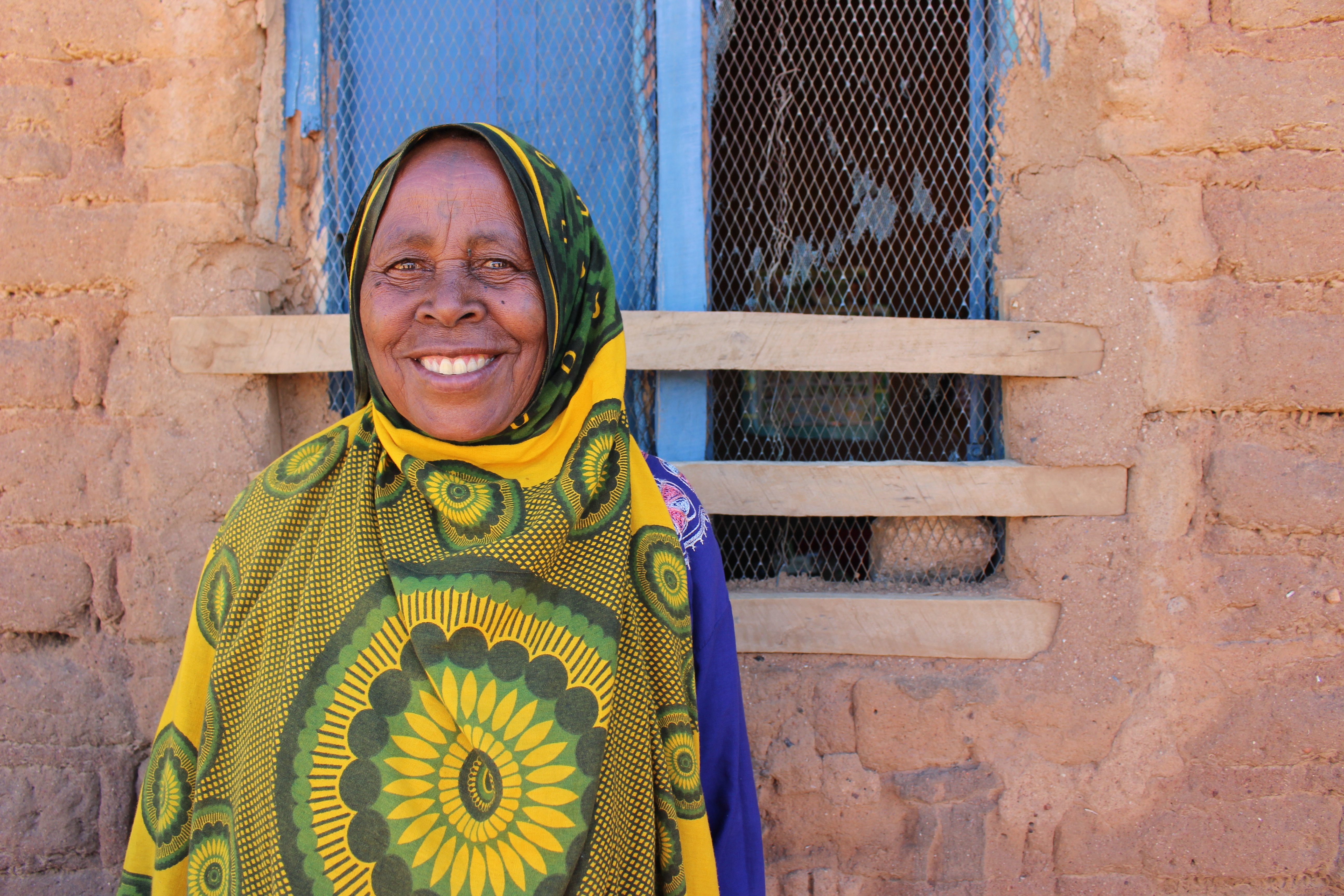
The group is lead by the energetic Hawa, who checks in on progress of participant’s Forest Gardens, but also hosts weekly support meetings. She also houses weaving and sewing equipment the group collectively purchased and members use it to create hats, sweaters, and other garments to be sold for extra income. Being a part of Trees for the Future’s Forest Garden Program has been transformative for this group. Although they have been a group for nearly a decade, only in the last year have they been a part of Trees for the Future. They are now transforming their plots into fertile and flourishing gardens to feed themselves, their families, and generate income.
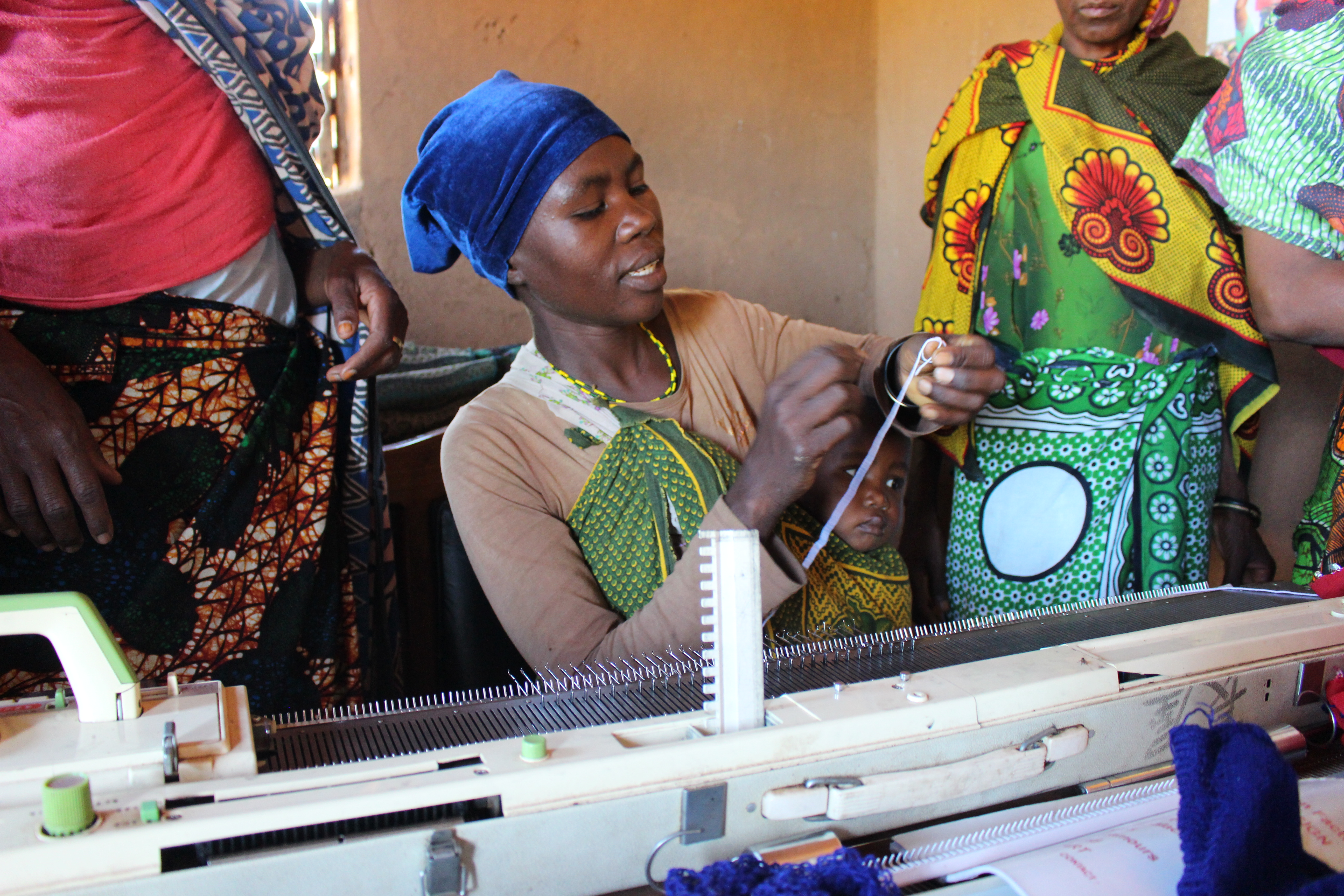
Due to increased awareness, screening, education, and treatment the prevalence of HIV has been decreasing in Tanzania in recent years, and rates in the Singida region remain among the country’s lowest at 2.7% (4.7% nationally). When new cases do occur, they tend to be identified earlier. Once a diagnosis is confirmed, a person can begin treatment and take precautions to prevent spreading the virus. Moreover, in recent years, availability of ART (antiretroviral treatment) has become more widely available, and is provided free of charge by the Tanzanian government. With treatment, those who are living with HIV can live many years, able to work and live normal lives.
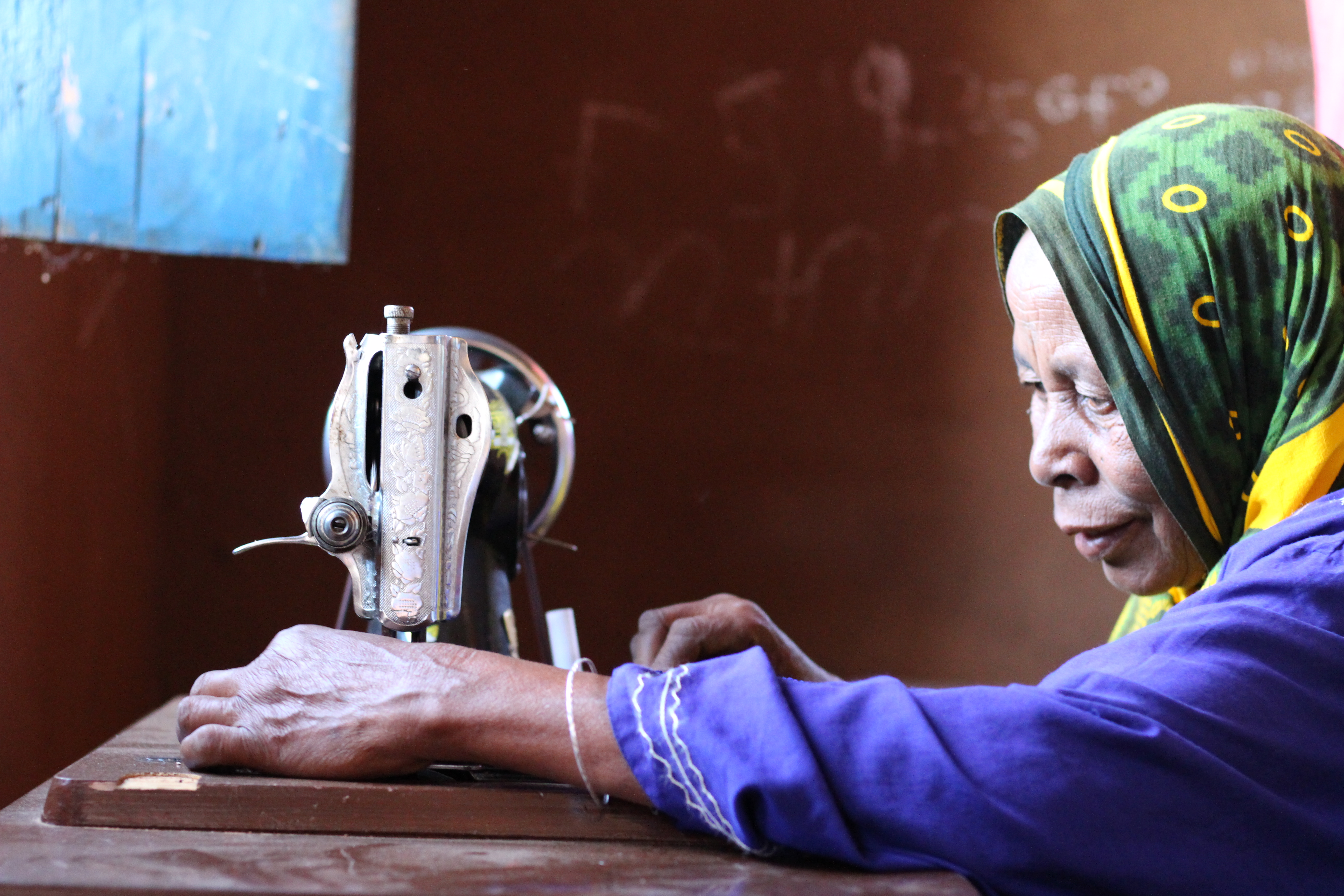
A key to receiving benefit from ART is being properly nourished. Farmers who are a part of the Forest Garden program are better able to be successful in their treatments due to their access to more abundant and diverse foods throughout the year. However, due to prejudice and the reality of physical ailments those with more advanced stages of HIV face, working outside the home is not always a viable option. But with the group support, Upendo farmers can work their land with the help of one another and their families. They also gather together in their leader’s home to create goods for sale, which requires less physical exertion. Together, as a group, they are lifting themselves out of poverty and working toward a more sustainable and constant income to ensure their family’s needs are met and they can live a happier and longer life.
